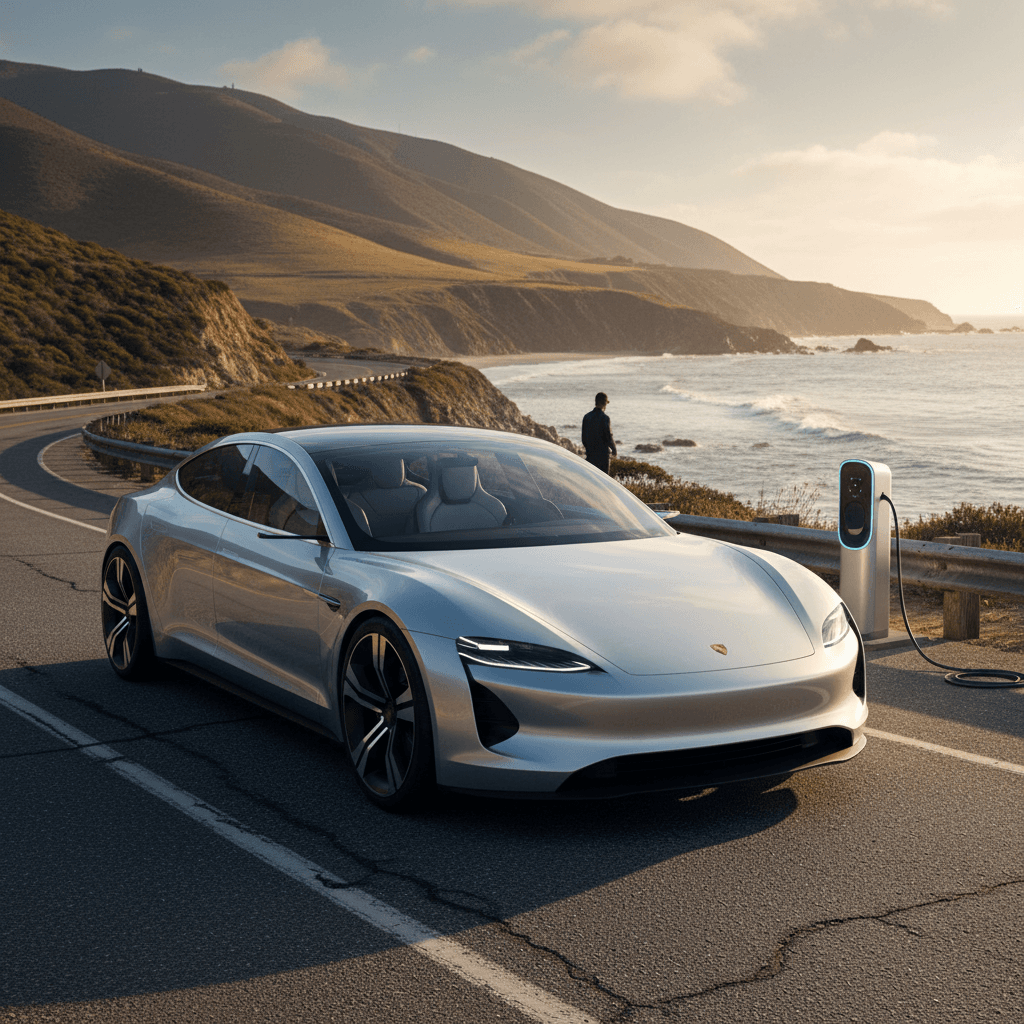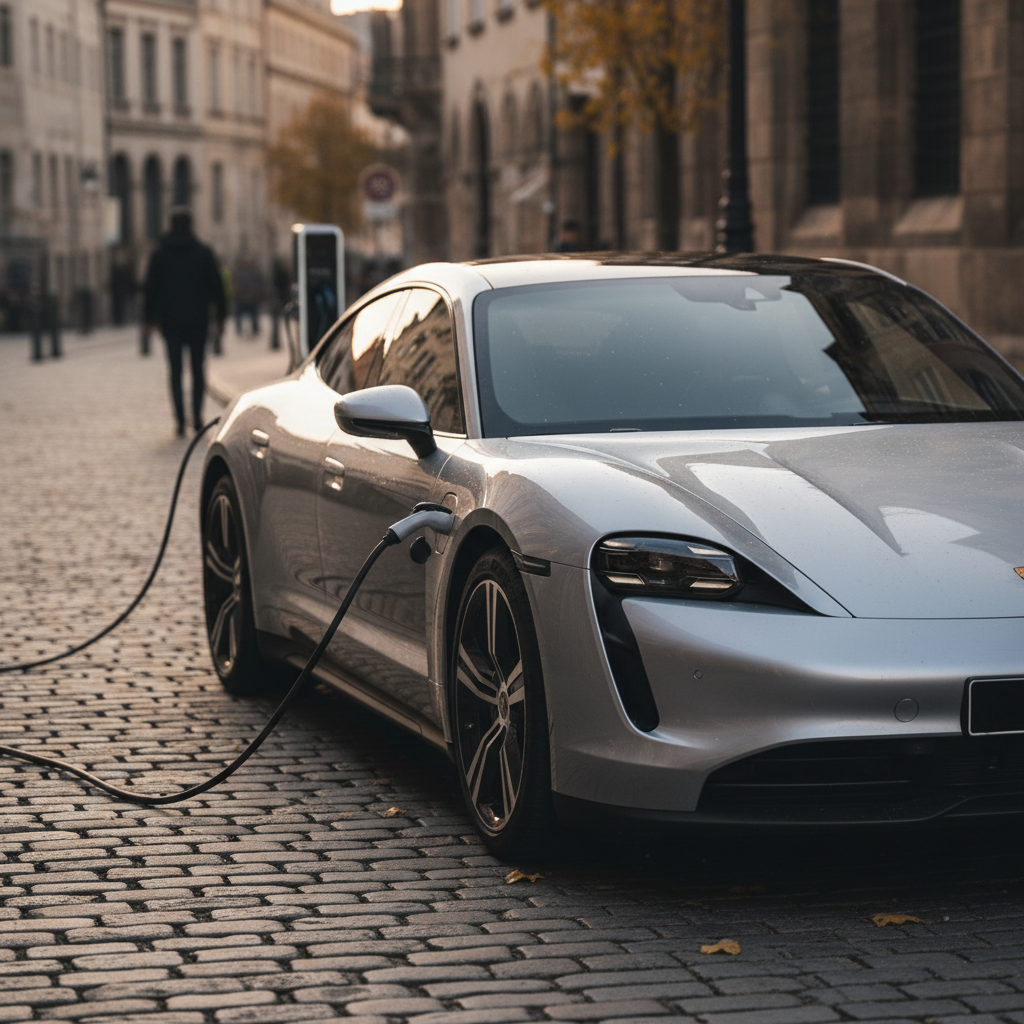If you’re hunting for good cars under $20K in 2025, you’re shopping in the hottest part of the used market. At this price you can still find safe, modern cars with backup cameras, Apple CarPlay, and serious reliability, plus, if you look carefully, some excellent used hybrids and electric vehicles that crush your fuel costs.
What This Guide Covers

Why $20,000 Is a Sweet Spot in 2025
What $20K Buys You in Today’s Used Market
Twenty thousand dollars used to be new‑car money. In 2025, it’s increasingly the sweet spot for lightly used compact cars, some midsize sedans, and a growing roster of hybrids and EVs. Thanks to faster depreciation on new models, and deep price drops on early EVs, you can buy more capability and safety used than you could new at the same price.
Stretch Your Budget With an EV or Hybrid
How to Shop Smart for Cars Under $20K
1. Start With Reliability Data
Before you fall in love with a color or a touchscreen, zero in on models with proven reliability. Independent studies of millions of vehicles consistently highlight brands like Toyota, Honda, Subaru, and Mazda near the top for long‑term durability in the compact and midsize classes.
Look for model years that earned strong reliability scores and still fall under the $20K threshold, usually cars about 3–7 years old.
2. Think Total Cost, Not Just Price
A $19,000 car that drinks fuel and needs pricey repairs can cost you more than an $18,500 hybrid with cheap running costs. Factor in:
- Insurance premiums
- Real‑world fuel economy (or electricity cost for EVs)
- Maintenance and repair history
- Expected resale value
For EVs, add charging access and verified battery health to your checklist, this is exactly what Recharged’s Score Report is built to surface.
- Set your out‑the‑door budget (including taxes and fees).
- Decide if you want gas, hybrid, or electric before you shop.
- Get pre‑qualified for financing so you know your real number.
- Focus on a short list of proven models instead of scanning every car on the internet.
Watch Out for False Bargains
Best Compact Cars Under $20K
Compact cars are where you’ll find the strongest mix of reliability, fuel economy, and modern features under $20,000. Many 2019–2021 models now slide under this price point, especially in base and mid‑level trims.
Good Compact Cars Under $20K
Reliable, efficient, and easy to park
Honda Civic (2019–2021)
Why it’s good under $20K: Consistently rated among the most reliable compact cars, with hatchback and sedan options, good crash scores, and plenty of tech in EX and Sport trims.
- Typical price: high teens for 2019–2020 models
- Strengths: Longevity, strong resale, engaging drive
- Watch for: Modified examples or heavy ride‑share usage
Toyota Corolla (2019–2021)
Why it’s good: The Corolla has become the default answer for ‘I just need a car that will not quit.’ Recent models add standard safety tech and smartphone integration.
- Typical price: mid‑ to high‑teens depending on trim
- Strengths: Stellar reliability, low running costs
- Watch for: Base models may feel slow if you do lots of highway driving
Mazda3 (2019–2021)
Why it’s good: Upscale cabin, sharp handling, and strong reliability ratings make the Mazda3 feel like a baby luxury car on a budget.
- Typical price: mid‑teens for well‑equipped trims
- Strengths: Interior quality, driving fun
- Watch for: Low‑profile tires and big wheels can mean pricier replacements
Shortlist If You Like Small Cars
Best Midsize Cars Under $20K
Midsize sedans give you more space and comfort while staying efficient. Under $20,000, you’re often looking at slightly older model years or higher miles, but you can still find excellent long‑term bets.
Good Midsize Cars Under $20K
Reliable, comfortable sedans with room for family and road trips.
| Model | Best Years to Target | Typical Price Range* | Why It’s a Good Car Under $20K |
|---|---|---|---|
| Toyota Camry (gas) | 2018–2020 | $17k–$20k | Legendary reliability, comfortable ride, widely available parts and service. |
| Honda Accord (gas) | 2018–2020 | $17k–$19k | Spacious cabin, strong safety scores, and a refined highway ride. |
| Subaru Legacy | 2018–2019 | $16k–$19k | Standard all‑wheel drive and solid reliability make it a standout for bad‑weather states. |
| Mazda6 | 2018–2020 | $17k–$20k | Sportier feel than most rivals with an upscale interior and good reliability. |
Prices vary by region, mileage, and condition; treat these as typical used‑market ranges, not guarantees.
Don’t Ignore Highway Miles
Best SUVs and Crossovers Under $20K
If you need cargo space, kid‑hauling, or all‑wheel drive, a compact crossover is often the best play under $20K. Full‑size SUVs in this range are usually older and thirstier, so we’ll stick to the smarter choices.
Good SUVs and Crossovers Under $20K
Practical, safe, and still affordable
Honda CR‑V (2017–2019)
Why it’s good: Big cargo hold, excellent reliability, and strong fuel economy for an SUV. Great family choice.
- Typical price: upper‑teens for 2018–2019 models
- Strengths: Space, comfort, resale value
- Watch for: Turbo models, confirm oil‑change history
Subaru Crosstrek (2018–2019)
Why it’s good: Standard all‑wheel drive, good ground clearance, and strong reliability scores in recent rankings.
- Typical price: mid‑ to high‑teens
- Strengths: Snow‑belt hero, adventure‑friendly
- Watch for: Modifications from off‑road use
Kia Sportage / Hyundai Tucson (2017–2020)
Why they’re good: Lots of features for the money, long powertrain warranties, and solid reliability in later model years.
- Typical price: mid‑teens depending on trim and miles
- Strengths: Value, comfort, warranty coverage on newer examples
- Watch for: Base engines can feel underpowered when fully loaded
Be Careful With Cheap Big SUVs

Good Hybrids Under $20K
Hybrids are the workhorses of people who hate spending money at gas stations. Under $20,000 you’ll mostly be looking at 5–9‑year‑old cars, but the right models are famous for racking up taxi‑level miles.
Hybrid Cars Worth a Look Under $20K
Hybrids that combine excellent fuel economy with strong reliability records.
| Model | Best Years to Target | Typical Price Range* | EPA Combined MPG (approx.) |
|---|---|---|---|
| Toyota Prius | 2015–2018 | $14k–$18k | 49–52 mpg |
| Toyota Camry Hybrid | 2016–2018 | $16k–$19k | 40–44 mpg |
| Honda Accord Hybrid | 2015–2017 | $16k–$19k | 45–48 mpg |
| Toyota Corolla Hybrid | 2020–2021 (high‑miles) | High teens | 48–52 mpg |
Battery replacement on these hybrids is relatively rare compared with early EVs, but always check warranty status and mileage.
Hybrid vs. Plug‑In Hybrid
Good Used EVs Under $20K
Electric vehicles are where depreciation can work hard in your favor. Several first‑ and second‑generation EVs have fallen into the $12,000–$20,000 range, especially with higher mileage. If your daily driving fits within their range, they can be outstanding values, if the battery checks out.
Good Electric Cars Under $20K
Great for commuters and second‑car duty
Chevrolet Bolt EV (2017–2019)
Why it’s good: Real‑world ranges commonly over 200 miles when new, quick acceleration, and modern tech. Recall battery replacements on many Bolts actually mean you’re buying a car with a newer pack if it was done correctly.
- Typical price: mid‑teens for earlier model years
- Best for: Commuters, city drivers, budget road‑trippers with DC fast‑charge access
- Watch for: Battery recall status and verified pack health
Nissan Leaf (2018+ second‑gen)
Why it’s good: The second‑generation Leaf brought better range and a more refined interior. Pricing on higher‑mileage examples has dropped sharply.
- Typical price: low‑ to mid‑teens for 40‑kWh models
- Best for: Short‑ to medium‑range commuting, households with home charging
- Watch for: Battery degradation in hot‑climate cars and on earlier 24‑kWh packs
Battery Health Is Everything
Other EVs that can sometimes dip under $20K, depending on mileage and local incentives, include earlier Kia Niro EV, Hyundai Kona Electric, and older BMW i3. These can be terrific city cars, but always confirm parts availability and charging compatibility in your area.

Financing, Insurance, and Total Cost of Ownership
Finding a good car under $20K is only half the job. The other half is making sure the monthly costs fit your life. That’s where smart financing, realistic insurance estimates, and a clear look at fuel or electricity costs come in.
Financing Under $20K
Before you test‑drive, get pre‑qualified so you understand how your credit translates into a real payment. Many shoppers discover they’re more comfortable around $16k–$18k than maxing out at $20,000 once they see the monthly number.
Recharged can help you pre‑qualify for financing with no impact to your credit, then match you with used EVs and plug‑in models that fit that budget.
Operating Costs: Gas vs. Hybrid vs. EV
- Gas car: Simpler to fuel and service anywhere, but you’re fully exposed to pump prices.
- Hybrid: Great if you rack up miles; fuel savings can quickly outweigh a slightly higher purchase price.
- EV: Lowest ‘fuel’ cost when you can charge at home, especially with off‑peak electric rates. Factor in public fast‑charging prices if you’ll rely on them.
Ask insurers for quotes on specific models you’re considering, safety ratings, repair cost, and theft rates can all swing the premium.
Plan a Small Repair Fund
Checklist: Before You Buy Any Car Under $20K
Pre‑Purchase Checklist for Budget Buyers
1. Lock in Your Budget
Decide your true cap, including taxes, registration, and an estimated first‑year repair fund. If $20K is the absolute ceiling, start your search closer to $17K–$18K.
2. Shortlist the Right Models
Focus on 3–6 models with strong reliability records instead of shopping everything in your zip code. That’s how you avoid ‘choice overload’ and rushed decisions.
3. Run the History Report
Pull a full history report to check for accidents, title issues, fleet or rental use, and mileage inconsistencies. Walk away from anything with a branded or flood title.
4. Get a Mechanical Inspection
Spend the $100–$200 for an independent inspection, or buy through a platform like Recharged where inspections and, for EVs, battery diagnostics are already part of the package.
5. For EVs, Demand Battery Data
Never guess at range. Use tools like the <strong>Recharged Score</strong> to see verified battery health and real‑world range estimates before you commit.
6. Test‑Drive Like You’ll Live With It
Drive on the highway, over rough pavement, and in stop‑and‑go traffic. Pair your phone, test all buttons, and make sure seat comfort and visibility work for your body, not just the spec sheet.
FAQs About Good Cars Under $20K
Frequently Asked Questions
Bottom Line: Start With the Right Shortlist
There are still plenty of good cars under $20K in 2025, you just need a clear plan to find them. Compact standouts like the Honda Civic, Toyota Corolla, and Mazda3; midsize veterans like the Camry, Accord, and Legacy; workhorse SUVs like the CR‑V and Crosstrek; and efficiency champs such as the Prius, Camry Hybrid, and Chevy Bolt EV can all deliver years of dependable service if you buy carefully.
Focus on reliability, total ownership cost, and, if you’re shopping electric, objective battery health. If you’d like expert guidance and verified diagnostics baked in, you can browse used EVs with a Recharged Score Report, get help with trade‑in or consignment, and even arrange financing and nationwide delivery without leaving your couch. That’s how a tight budget turns into a smart buy, not a rolling headache.


